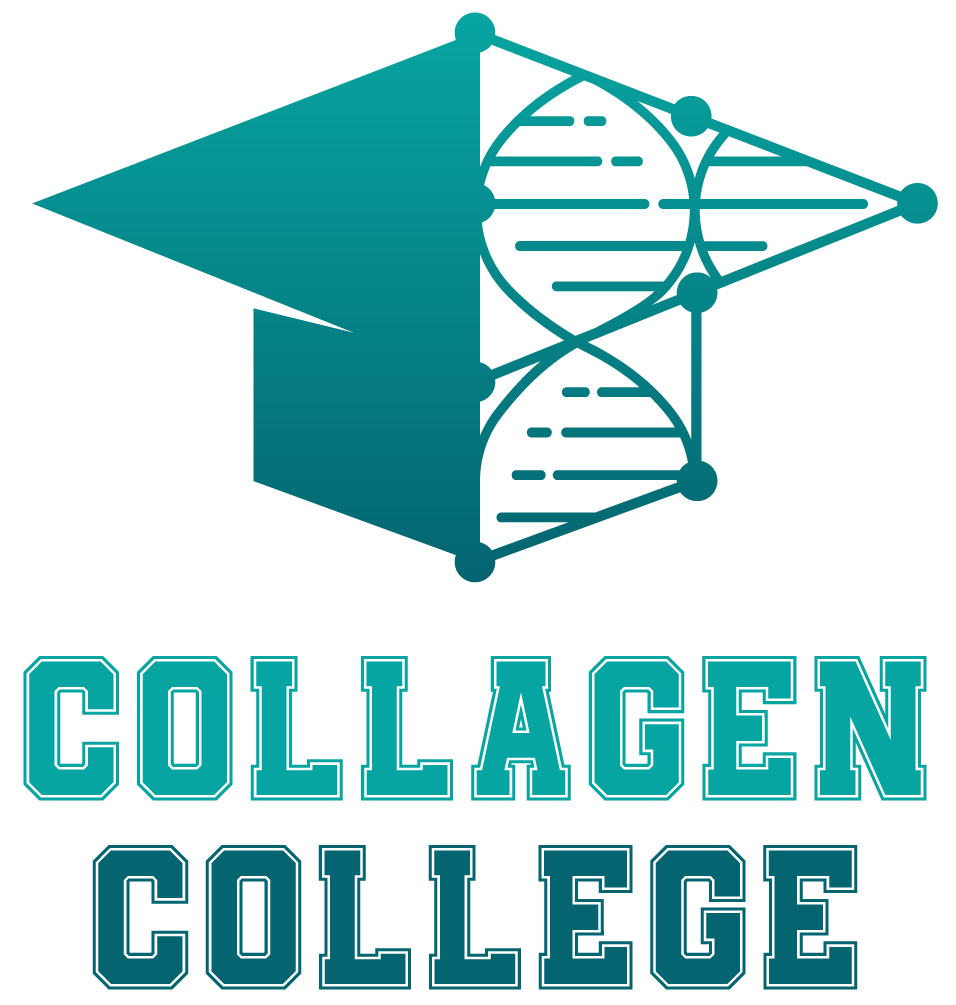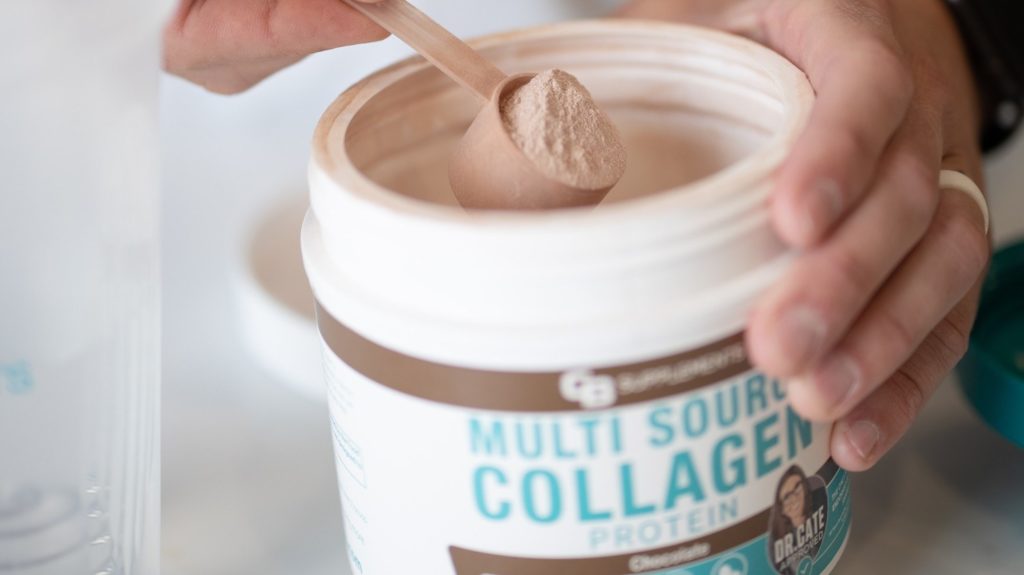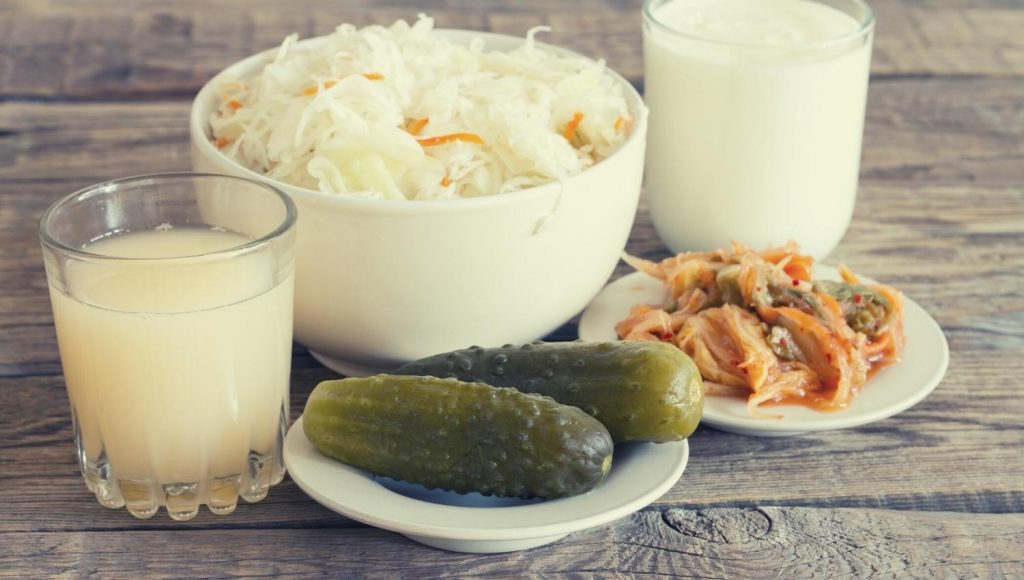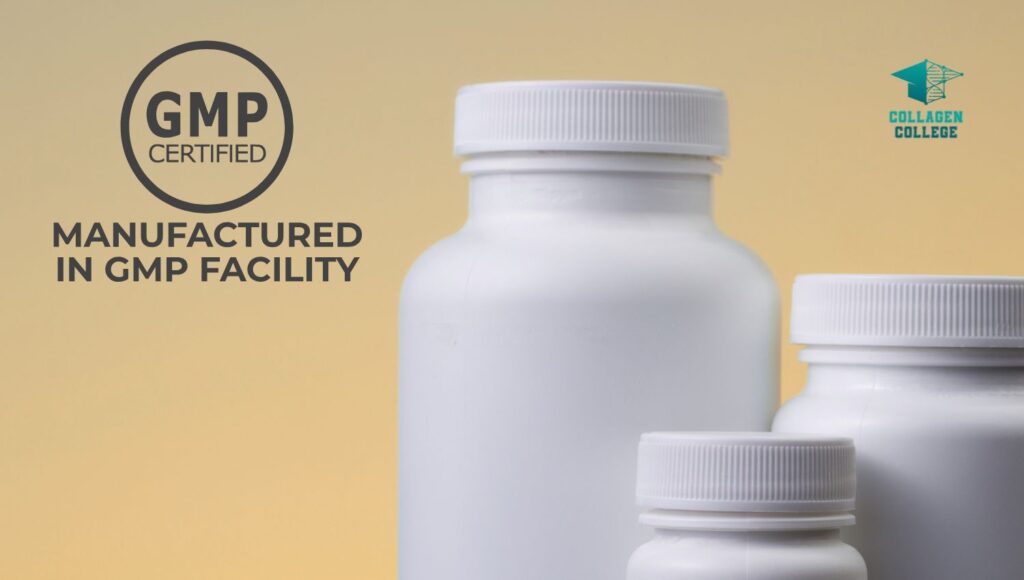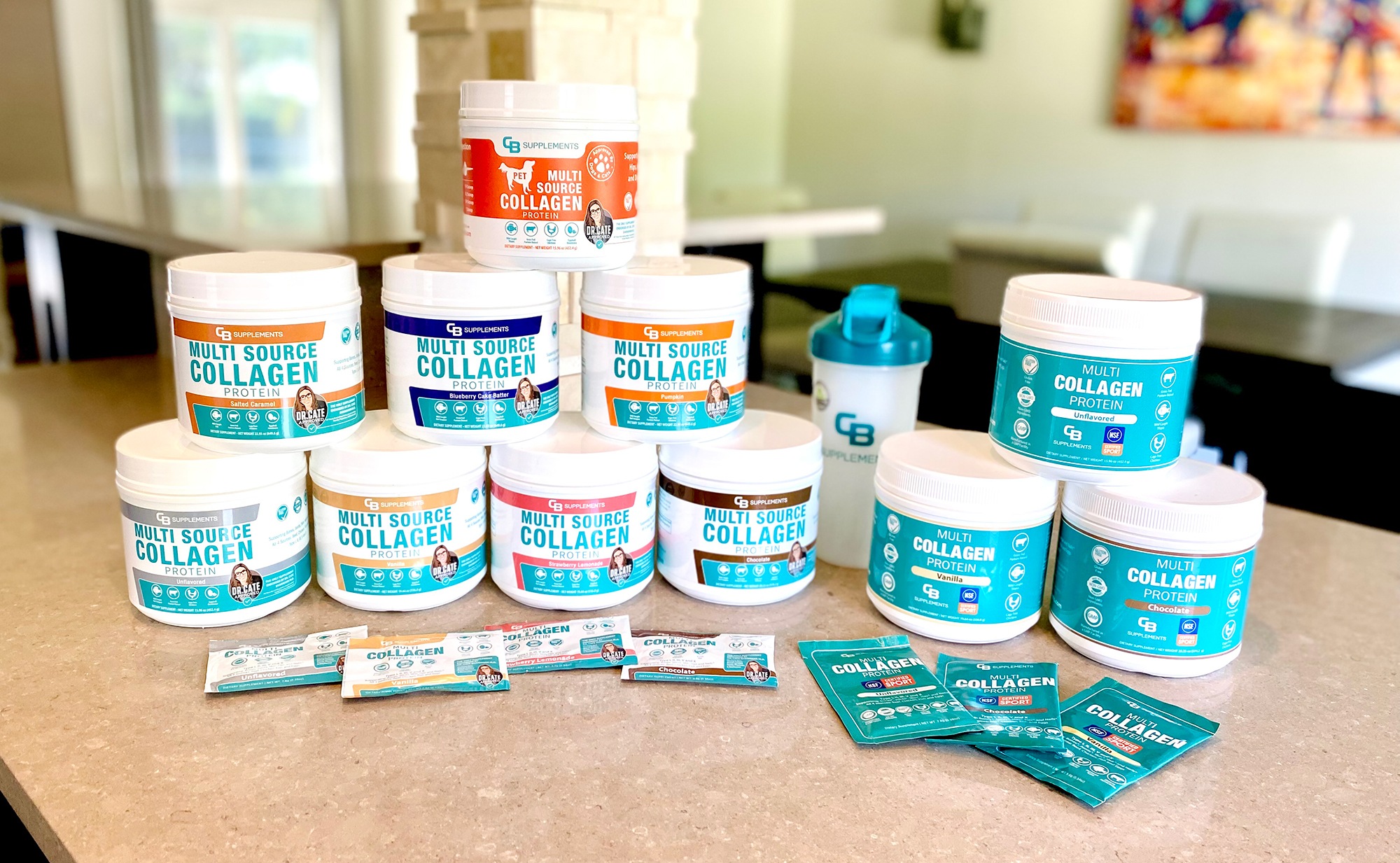This idea of taking collagen with [fill-in-the-blank] tends to be a common question we field. It’s why we’ve written articles to debunk the myths around collagen and vitamin C and offered guidance in taking collagen with multivitamins.
We’re thankful to Frances for taking the time to send us this one:
Can collagen peptides be taken with probiotics or GI supplements?
— Frances
Since 60-70 million Americans are affected by digestive diseases according to the National Institutes of Health, this is absolutely worthy of exploring. But first, let’s address a simple question.
Is Collagen a Probiotic?
This question is a great way to start this conversation since collagen and probiotics have some shared benefits. It might seem easy and harmless to assume collagen is a probiotic, but it’s not.
Probiotics must, by definition, contain a living organism. Since collagen has no living organisms, it is not considered a probiotic.
Let’s now discuss the shared benefits of these two superfoods.
Shared Benefits of Collagen & Probiotics: Digestive Health
Whether you’re taking collagen with natural probiotics such as yogurt, fermented cheeses, and vegetables, or taking with a probiotic dietary supplement, you’re probably seeking overall gut health as one of the benefits you’re desiring.
And that’s the conundrum. And why you’re probably here.
-
- Probiotics = gut health
- Collagen = gut health (though collagen offers many more benefits)
Since collagen can help with digestive health, and probiotics do the same, could this be a problem?
Do their benefits cancel each other out?

Could taking probiotics and collagen, like, cancel each other out?
Just like the doldrums (aka Intertropical Convergence Zone) cancel out the northern and southern hemisphere winds around the equator, leaving ships sometimes without wind for days, could the same be said about collagen and probiotics? Do they cancel each other out?
Though this nautical phenomenon is fun to reference, let’s shift this conversation back to nutrition and solicit help from Dr. Cate.
Is taking Collagen with Probiotics still Effective?
When it comes to mixing a scoop of collagen peptides with your probiotics, Dr. Cate, M.D. says there’s nothing to worry about with the probiotics impacting the efficacy of the collagen.
There’s no reason to expect that probiotics would interfere with collagen’s health effects.
— Dr. Cate, M.D.
Flipping the coin, she also states that collagen won’t have any negative impact on the probiotics, either. “Collagen won’t interfere with the health effects of probiotics”.
Great!
This is NOT a doldrums situation.
Phew!
Choose Natural Probiotic Foods, First.
If you’re an existing customer or have simply been following us for a bit, you know we believe in getting your nutrition from food FIRST, then supplementing.
This manifesto doesn’t change with probiotics.
Hands down, the best source for probiotics is food such as yogurt, fermented sauerkraut, and pickles, kimchi, and kombucha. These are a foundational element to a balanced diet (Four Pillars of World Cuisine), and the only probiotics guaranteed to have living, beneficial organisms.
Start with natural probiotic foods first when consuming collagen. Then, if you need to supplement (and we all need to at times), choose probiotic capsules — more on that below.
Choose Probiotic Capsules, Second.
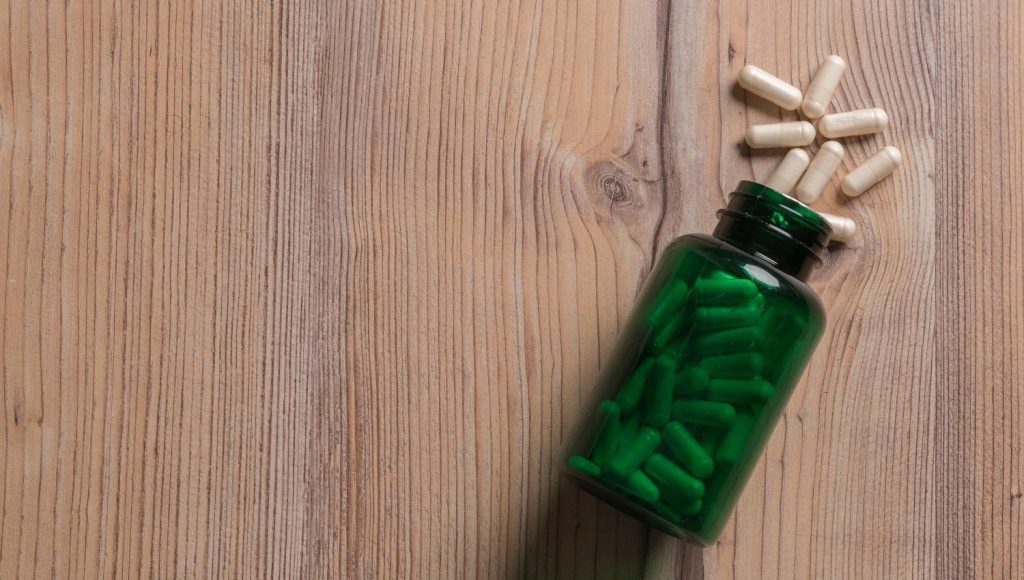
Just like collagen supplements come in various forms, so do probiotics. The typical vehicle of delivery will typically be a capsule or powder.
Most probiotics are in capsules and that’s actually important for their viability.
— Dr. Cate, M.D.
If you go the probiotic supplement capsule route, ensure the capsules:
- Contain 1 Billion Units. Probiotic supplements need to contain at least 1 billion colony-forming units and contain the most well-researched genus.
- Come Refrigerated. Most probiotics are heat-sensitive. “Without refrigeration”, says Dr. Cate, “Most of those billions of colony-forming units will be long since deceased, dead, worthless, and unable to start little colonies”.
Once you choose capsules as your vehicle, taking with collagen (like one of our multi collagen supplements) is an absolute breeze.
3 years of benefits!
"Been using this multi collagen peptides for 3 years and continue to experience positive benefits!"
- Michael (Winter Park, FL)
✔
Purity Tested
✔
M.D. Approved
✔
Delicious Flavors
Mixing Probiotic Powder with Collagen Peptide Powder
Choosing probiotic capsules over probiotic powder is the absolute best way to avoid any efficacy issues.
The process is simple:
- Take a probiotic capsule.
- Take collagen however you want. Here’s how to use collagen powder, and if you’re wondering, there’s no best time to take collagen.
However, we realize powders can be an easier vehicle for both adults and kids — as we explored in collagen powder vs pills — since many people struggle with swallowing pills. If you’re a parent like myself, you know the legit objection kids have to swallowing pills. #lostcause.
Tips for taking probiotic powders with collagen powders
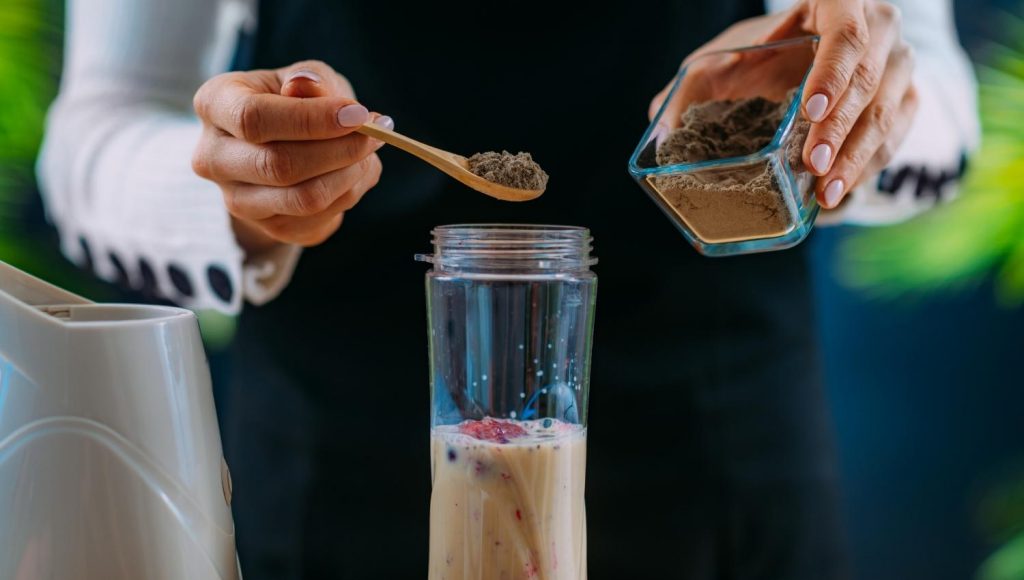
- Avoid excessive changes in temperature (e.g. Hot Coffee!) Remember, probiotics are sensitive to heat. So, adding a scoop of refrigerated probiotic powder to your hot morning collagen and coffee, tea, oatmeal, eggs, etc. could potentially kill the bacteria. This is throwing money away!
- Keep mixing simple. Probiotics are very sensitive to changes in salt content and pH (the reason we recommend capsules) so if you do want to mix both powders, keep things very simple and avoid acidity (e.g. Orange Juice).
If you want to roll the dice and take both powders with food, here are some general ideas:
- Smoothies. Check out our collagen smoothie recipes.
- Yogurt. Throw in both powders, stir it up!
- Milk. Add to a shaker bottle and shake away. Great for kids! Don’t miss our collagen for kids guide.
- Water. A flavored collagen powder can be your ally. Use a shaker bottle here as well to mix the collagen and probiotics with cold H2O.
Collagen Peptides with GI supplements
Let’s quickly address the other part of Frances’ question.
Can collagen peptides be taken with GI supplements?
— Frances
Both enzyme supplements and probiotic supplements can help with GI health. “Enzymes enhance the digestion of foods, while probiotics help support the immune functions of the gut”, states Houston Enzymes.
Can you take collagen peptides with GI supplements?
The answer isn’t as simple as we explored above with probiotics.
“If your gastrointestinal supplements contain enzymes, they may chop up some of the bioactive peptides in collagen”, says Dr. Cate. “Unlike our normal digestive enzymes, which are not released until passing through the stomach, external enzymes can start breaking the stuff down if they’re mixed or swallowed together.”
Unlike a probiotic supplement, there could be an impact of consuming GI supplements directly with a collagen powder if enzymes are present. Be sure to check your supplement labels for enzymes.
“Other than that, feel free to consume together”, adds Dr. Cate.
